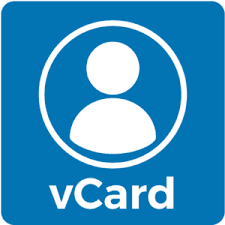You have decided to purchase a new Central Florida home, or at least consider the option of Central Florida home ownership. There are many benefits to be realized from home ownership and lots of information to be absorbed to make sure you make the best decision for you and your family! We designed our Central Florida Real Estate website to give you all the tools you need to figure out how much you can afford, help you with tips on how to choose a Central Florida Realtor, the ins and outs of getting a mortgage, shopping for your new Central Florida home, negotiating the best deal and what to expect during the contract to close process. Buying a home is an exciting event in your life - at Randolph & Co., our goal is to make the home buying process as efficient and enjoyable as possible.
One of the keys to making the home buying process easier and more understandable is planning. In doing so, you'll be able to anticipate requests from lenders, lawyers and a host of other professionals. Furthermore, planning will help you discover valuable shortcuts in the home buying process.
Do You Know What You Want? Whether you are a first-time homebuyer or entering the marketplace as a repeat buyer, you need to ask why you want to buy. Are you planning to move to a new community due to a lifestyle change or is buying an option and not a requirement? What would you like in terms of real estate that you do not now have? Do you have a purchasing time frame?
Whatever your answers, the more you know about the real estate marketplace, the more likely you are to effectively define your goals.
Do You Have The Money? Homes and financing are closely intertwined. The good news is that over the years new and innovative loan programs have evolved which require a 5 percent down payment or less. In fact, a number of programs now allow purchasers to buy real estate with nothing down.
In addition to a down payment, purchasers also need cash for closing cost. Several newly emerging loan programs not only allow the purchase of a home with no money down but, also underwrite closing costs.
Not everyone, however, elects to purchase with little or no money down. Less money down means higher monthly mortgage payments, so most homebuyers choose to buy with some cash up front. As to closing costs, in markets where buyers have leverage, it may be possible to negotiate an offer for a home that requires the owner to pay some or all of your settlement expenses.
Is Your Financial House In Order
Those great loans with little or nothing down are not available to everyone: You need good credit. For at least one year prior to purchasing a home, you should assure that every credit card bill, rent check, car payment and other debt is paid in full and on time.
- Are You Ready? In addition to a down payment, you also need cash for closing costs. Find out how much you have and how much you will need. Several Loan programs help with these costs. You may also be able to make this a negotiating point in the offer you put on a property.
- Hire A Buyer's Agent Be sure you're working with a true professional and someone you feel comfortable dealing with. A Buyer's Agent insures you are being fully represented in a transaction.
- Get A Loan Pre-Approval The real issue with real estate financing is not getting a loan, but to get the loan that's right for you. Meet with lenders to find out how much you can afford and find out which programs are available.
- Look At Homes Before you look, list the features and benefits that you want in a home. Consider, pricing, location, size, layout and extras. Decide what's most important and how much you're willing to compromise.
- Choose A Home Review your notes to narrow down the choices. When you find the home of your dreams, your Buyer's Agent, can help you be sure it is a good fit for you and your family. It is also part of your agent's job to help you consider all of the pros and cons of the property including its future resell value.
- Get Funding The mortgage you choose will be determined by how much down payment you can afford, your credit rating, and your income. Shop around with mortgage brokers, banks, credit unions, and insurance companies to find the financing that works for you.
- Make An Offer An offer is more than the price you're willing to pay. It also includes the terms and timeline of the agreement. Sellers may accept the offer, reject it or make a counter-offer.
- Get Insurance Shop around for title insurance, homeowner's insurance, flood insurance, and a home warranty. Ask your Buyer's Agent which of these are required for your new home.
- Closing This is the official meeting where the transaction happens. A closing attorney or a title insurance company will make sure all of the required paperwork is complete. Then it's official. You get your new keys and the seller is paid for the home.

